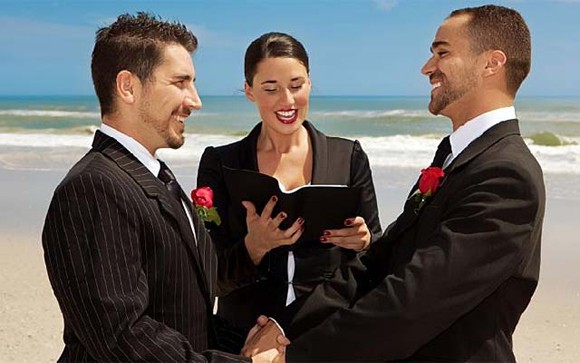IN the context of a vote for marriage equality coming before the Legislative Council again this year, the May 4 elections for three MPs in that chamber may tip the balance in favour of those who support fairness and freedom, and who do not believe the state has any role in discriminating against people on the basis of their sexuality.
Newly announced independent Liberal candidate for the Legislative Council seat of Nelson Hans Willink is one who supports Tasmania moving forward positively on same-sex marriage.
Mr Willink sees it this way: “Put simply, it is not my business nor anyone else, including churches, to prohibit another person’s activity if that activity makes them happy and there is no suffering or victim resulting from that activity.”
“To me, ‘activity’ includes same-sex couples calling their lifelong relationships ‘marriage’,” he said.
“Another reason I have no issue with marriage equality is that existing Tasmanian relationship and de facto laws already cover the legal requirements of a ‘marriage’.
“All we are really arguing about is the use of a word to describe it. A word which no religious or other group has monopoly rights over.”
Of the argument mounted by some Legislative councillors that, in spite of advice from the foremost constitutional scholar in Australia George Williams, a Tasmanian same-sex marriage law would not be unconstitutional, Willink does not share the view of the doomsayers who think such a challenge would cost millions of dollars in legal fees.
“I suspect that there would be many same-sex advocate lawyers who would take on a job for nothing, if asked,” Willink said.
“Just who would the plaintiff be?”
In fact, Willink thinks a challenge to a Tasmanian marriage equality law would be good for this state.
He says there would be “huge publicity generated for ‘that little state Tasmania’, once the most redneck in the nation, now the most liberal and progressive, fighting for the rights and freedom of minorities”.
“When coupled with cultural diversification achieved through MONA and the arts, it’s a very powerful message. Supporting marriage equality, then, makes economic sense as well as natural justice,” Willink argues.
Willink’s reasoning is coherent and logical. His views are in step with those of an increasing majority of people in liberal democratic societies. And he is not fooled by the utterly absurd argument that legislators should refuse to pass a law providing for equality simply because it might be subject to a court challenge. If that line of reasoning applied generally then there would be thousands of laws that would never see the light of day.
For Tasmania’s Legislative Council to vote against same-sex marriage again this year would be to demonstrate that it is out of touch with community sentiment, both in Tasmania and globally.
Same-sex marriage is not a left or right issue.
Most tellingly, British Prime Minister David Cameron, a Conservative Party MP, has committed to same-sex marriage. Cameron argued in February this year after the House of Commons voted in favour of same-sex marriage: “The great thing about last night’s vote is that two gay people who love each other will now be able to get married, and I think that is an important advance.”
In the US, high-profile Republicans are backing same-sex marriage. Jon Huntsman, a former Governor of Utah and a 2012 Republican presidential candidate primaries contestant, has argued: “There is nothing conservative about denying other Americans the ability to forge that same relationship with the person they love.”
Former Republican Party chief Ken Mehlman argued in an op-ed piece in the Wall Street Journal on November 20 last year that conservatives should support same-sex marriage because what “could be more conservative than support for more freedom and less government? And what freedom is more basic than the right to marry the person you love? Smaller, less intrusive government surely includes an individual deciding whom to marry. Allowing civil marriage for same-sex couples will cultivate community stability, encourage fidelity and commitment, and foster family values.”
So much for some in the Liberal Party and the letters pages of this newspaper who argue that same-sex marriage is part of a radical leftist agenda.
It is not and never has been.
Tasmania, as Mr Willink says, has the chance to lead on same-sex marriage. It has the opportunity to tell the rest of Australia that the state should be about maximising freedom, not curtailing it. That families are made up of different stripes and this is a matter for celebration, not fear.
In the lead-up to the Legislative Council elections on May 4, voters should ask candidates where they stand on same-sex marriage. If they support it like Mr Willink does then they are worth considering voting for, because it means they have a mindset that is open and prepared to push social change.
That is the sort of person we should want in the Legislative Council.
Greg Barns is a Hobart-based human rights lawyer and campaign director for the WikiLeaks Party.
Author: GREG BARNS
Publication: The Mercury
Publication Date: April 15 2013

